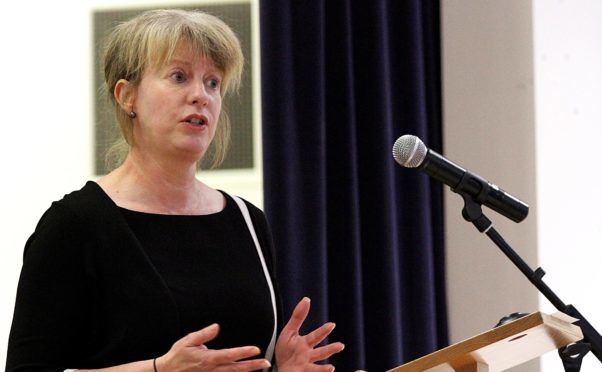Shona Robison was in a television studio over the weekend insisting she is the person to cure the health service of its ills.
It is not the first time her position as health secretary has been brought into question.
Judging by the pervasive issues laid out in Audit Scotland’s assessment of the NHS last week, it will not be the last.
It should be pointed out that the report raised some positives, with patient satisfaction rates at an “all-time high” and progress towards the SNP’s flagship policy of health and social care integration.
One of the most alarming sections of the public spending watchdog’s report – and there were a few to pick from – was the reference to care levels being at risk from the funding squeeze.
On top of that, auditors said Scotland’s general health is not improving in a country which has among the lowest life expectancy in Western Europe and where the gap between the health of the rich and poor is as wide as the Tay.
Health boards are desperately trying to stay in the black.
Tayside, which serves a population of nearly 400,000 people, is struggling to do so and is likely to need another bail-out from the Scottish Government this year.
So far, the health board’s performance is holding up despite its financial woes. Like Fife, it met half of the key waiting time targets, compared with just one out of eight nationally.
Despite Tayside’s assurances, it is hard to see how spending cuts will not compromise patient safety in the longer term without interventions to increase funding and sweeping reform.
The health board, which cannot make redundancies, has set out a plan to find more than £200m of savings over the next five years.
The low-hanging fruit is gone and health boards are becoming increasingly reliant on one-off savings, which is making the root around for efficiencies harder every year.
Health spending has gone up, but is being outstripped by demand.
That is only going in one direction, with population forecasts published by the National Records of Scotland last week showing the number of over-65s rising by a quarter over the next 25 years.
Politicians and health bosses will have to be braver.
No-one wants to talk about privatisation in Scotland, but there should be a free and frank debate about whether there is a greater role for the private sector, while preserving the founding ideals of the NHS.
Ms Robison stood staunchly against expanding the use of the private sector (at the moment £20m or 0.2% of the health budget is spent on the private sector) in any form during her interview with Sunday Politics Scotland on Sunday.
It seems unlikely she will face questions from anyone on the opposition benches to challenge that assumption.
At First Minister’s Questions on Thursday, Nicola Sturgeon tore into a proposal that surfaced at an English health board to ease bed-blocking by putting medically fit patients into AirBnB-style accommodation.
That plan is not without its flaws, but radical solutions will be required to ease delayed discharge that costs the NHS £214 for each of the half-a-million plus bed days lost to the scourge every year.
The SNP worked hard to win over doubters and build up a reputation for competence in government.
They are likely to put forward plans to increase income tax in the coming weeks, which should provide a welcome cash boost for the NHS.
But tax rises are only tolerated when politicians have the public’s trust that their money will be spent wisely and lead to tangible results in the form of improved public services.
After 10 years in power – with the SNP struggling with the basics of filling classrooms with teachers and surgeries with doctors – that confidence could wear thin.
